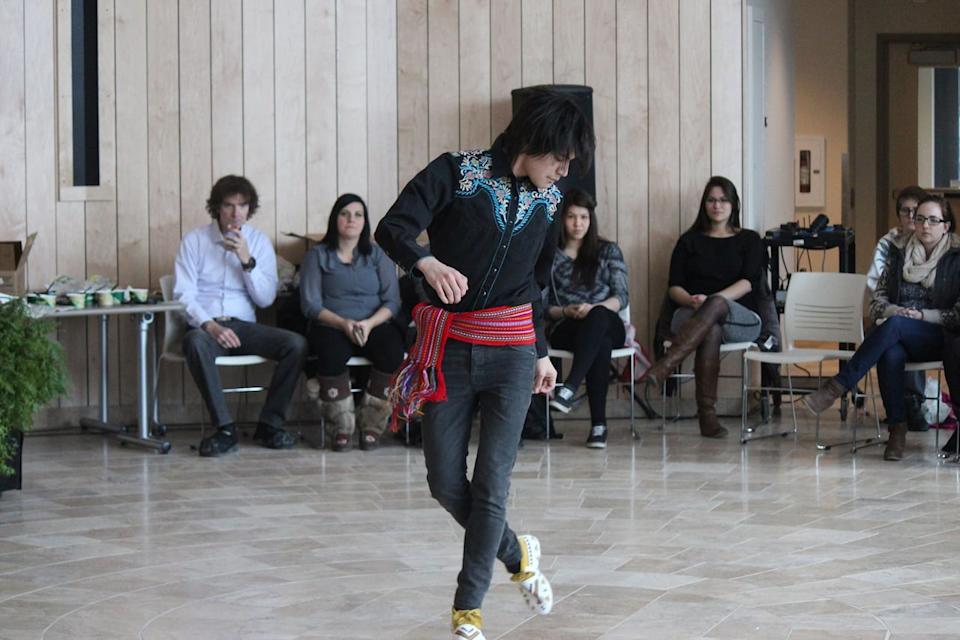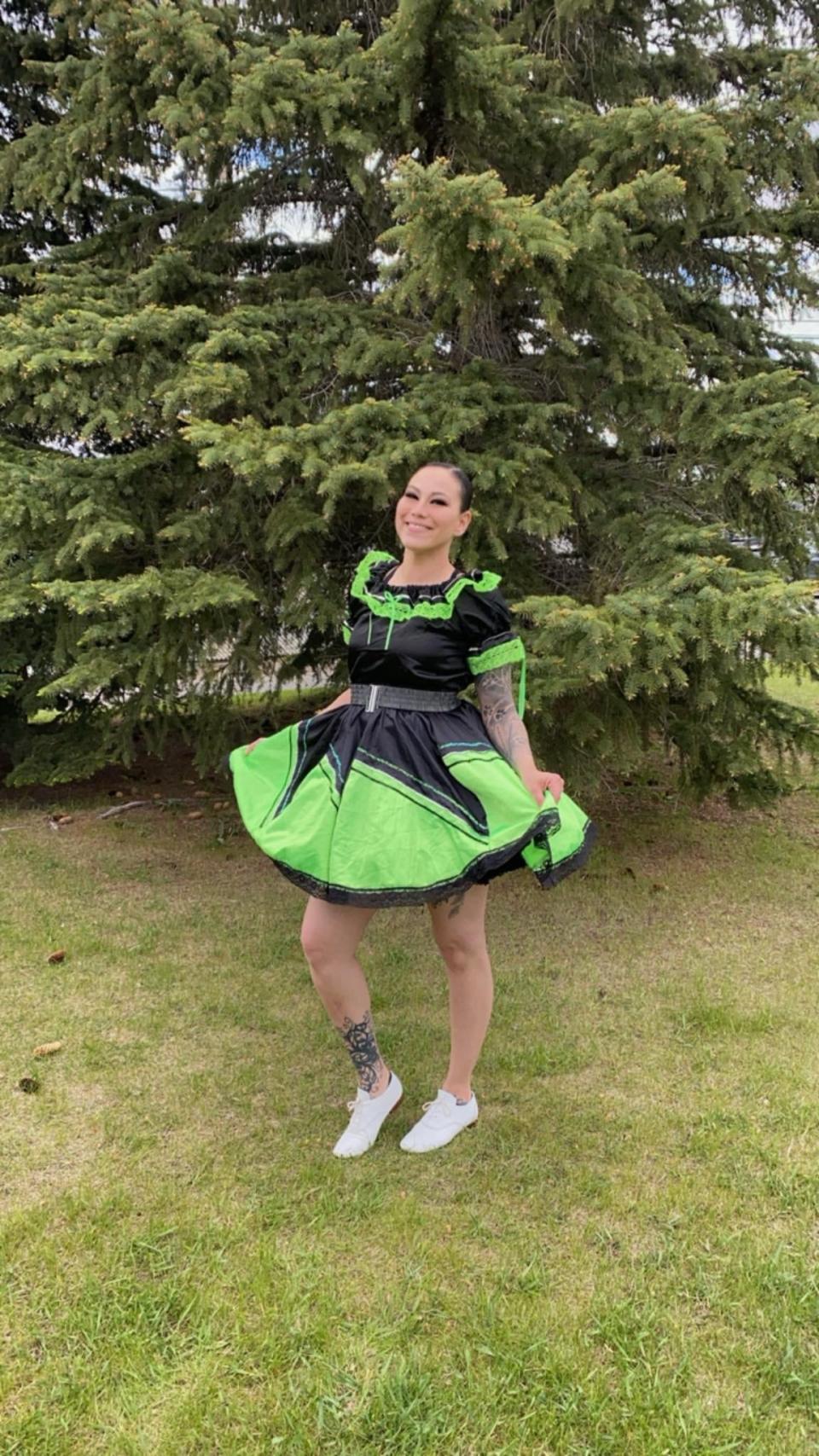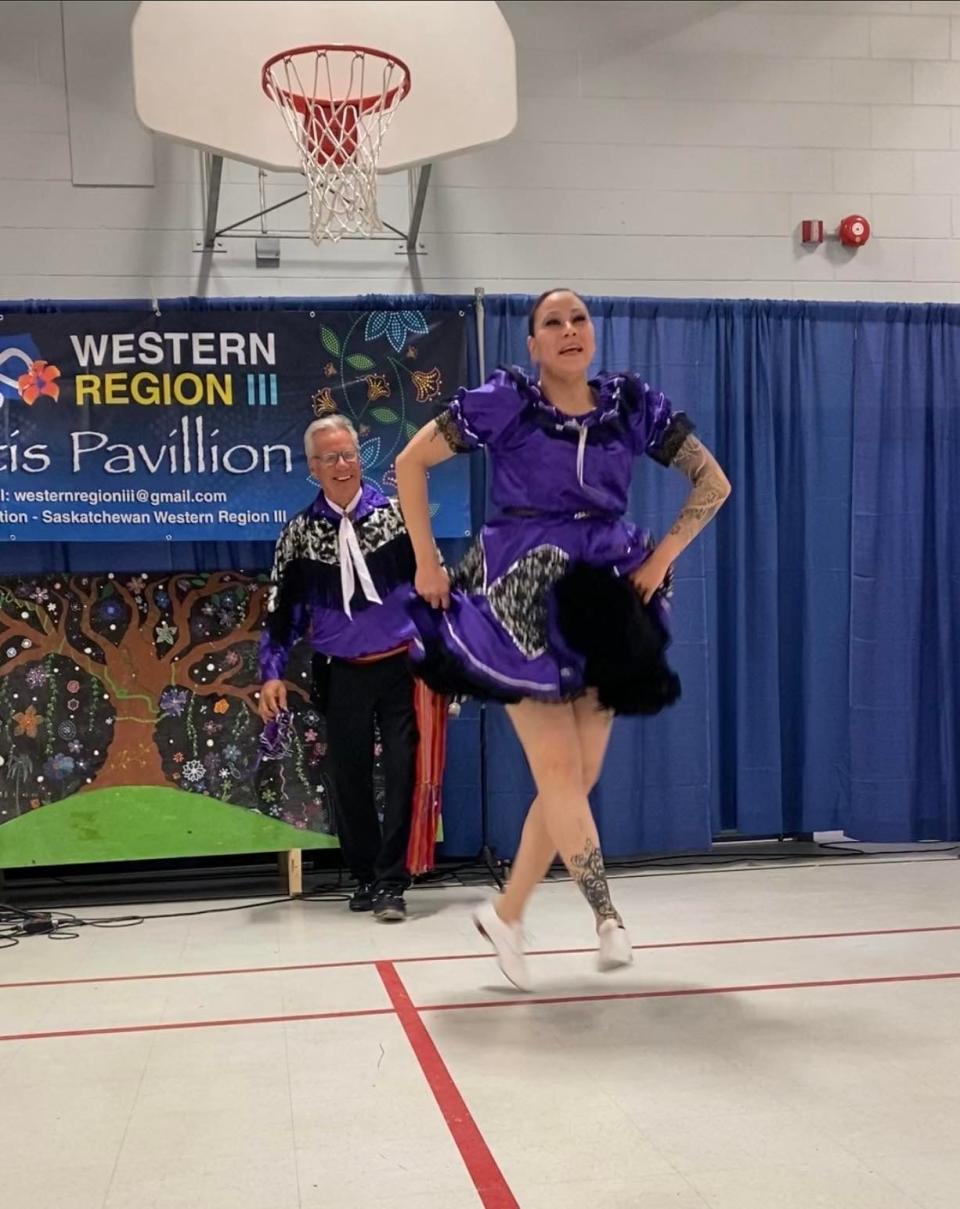Meet two Sask. dancers who are spreading the joy of Métis jigging
Marcus Merasty remembers growing up in Pelican Narrows, Sask., and watching his friends jigging.
"I kind of felt a little bit left out because they looked like they were having so much fun," he said, adding he didn't learn how to dance himself until after he turned 18 and graduated high school.
From that point on he started dancing daily, and has been dancing ever since.
Fiddle dances, also known as dry dances, are held in Indigenous communities all across Canada.
Merasty said the thing he loves about Métis jigging is that it brings people together.
"I can really feel the community aspect of the dance, which I really love," he said. "You see people of all generations, like small, old, all dancing together and learning from each other."
The feeling of community that Merasty got from Métis jigging inspired him to teach others to jig as well. Merasty teaches classes at the New Dance Horizons dance studio in Regina.
"It just feels so fun and wholesome and social," he said. "That's why I love to teach and that's why I first started doing it as well, because it was just a really fun dance to do."
He said jigging was introduced into his home community of Pelican Narrows through the trade routes of fur traders and different Indigenous peoples. The fur traders coming to the trading post brought elements of their culture, such as the Irish jig and fiddle music.

"It was an easy thing to do," said Merasty. "It was like a social dance … a lot of Indigenous dances are more ceremonial. So I feel like the Métis dance was a bit more fun and laid back, sort of more inviting for people."
Since he started teaching a decade ago, he has taught close to 1,000 people. His hope is that there will be more places for people to learn jigging in the future.
"I get a really good feeling from it, and I hope that it can flourish," he said.
Carrying on her family tradition
Courtney Dawn Anaquod founded the Qu'appelle Valley Dancers in 2017, inspired by her Mushum (grandfather) Morris Anaquod's band called Qu'appelle Valley and Sons.
Her Mushum played the fiddle; her father was the guitar player; and her uncles were also part of the band. Anaquod's Kokum (grandmother) Theresa was a championship jigger at Back to Batoche in the 1980s.
Dancing was a big part of Anaquod's life growing up.
"I found a deeper connection to my roots and with the dancing that runs in my family," she said, explaining she taught herself how to jig.
"(It) took my dedication and passion to practise 30 minutes to sometimes even four hours a day, every single day, when I was a little girl."

Anaquod said there are various styles of jigging.
"Each style is different and to each individual who is an artist in their own way, to who they were taught by, to the community that they come from," she said.
During the era of residential schools and when people weren't allowed to practise ceremonies, Anaquod said people would have kitchen parties to gather and celebrate events like birthdays and anniversaries.
"They would bring their instruments, their guitars, their fiddles and … hold these celebrations in their kitchen … in the comfort of their own home," she said. "They weren't seen practising that tradition, and (they) kept that connection alive."
The kitchen parties kept people connected to who they were as Indigenous and Métis people, Anaquod said.

Now teaching her daughter and her nephew to jig, Anaquod said it makes her feel proud to instill her family's tradition into them so they can carry it on.
She said whenever she goes on stage to perform, she holds her head held high with confidence. She is proud of who she is, and where she came from.
"I can feel my ancestors are right beside me dancing, and I'm bringing that spirit back to life."


